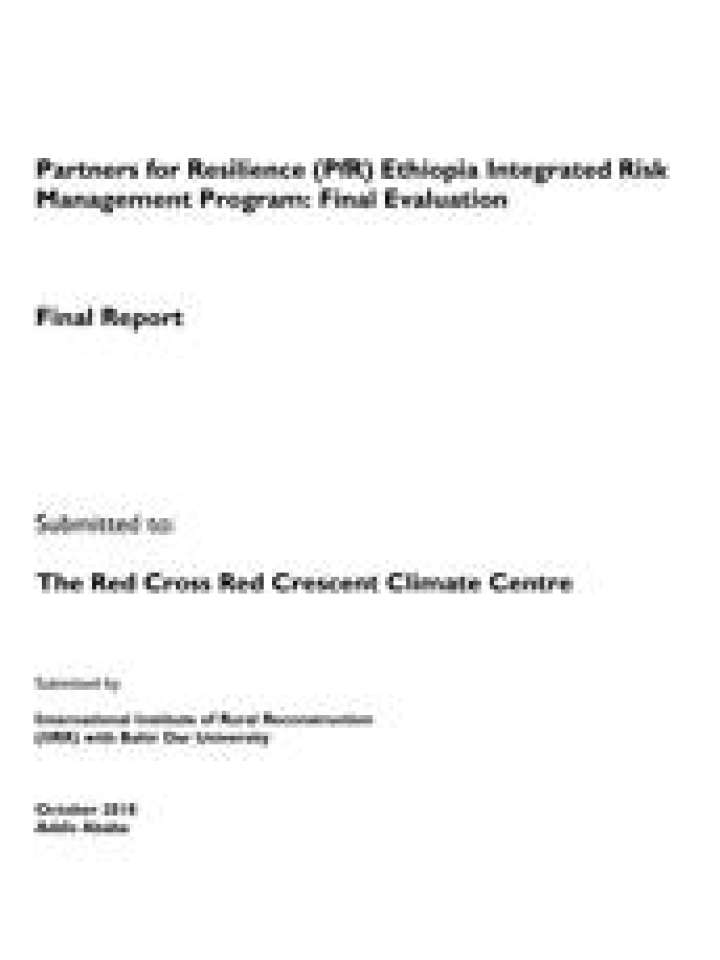Partners for resilience (PfR) Ethiopia integrated risk management program: Final evaluation
The work of Partners for Resilience (PfR) centres on making people, communities and systems better prepared to withstand catastrophic events, and enabling them to bounce back more quickly and emerge stronger from shocks and stresses. PfR promotes four building blocks, helping communities to: anticipate the risks they face, respond when disaster strikes while maintaining basic structures and functions, adapt to changing risks and livelihood options, and finally address root causes as active partners with government in implementing disaster risk reduction.
In Ethiopia, the first phase of PfR was implemented from 2011 to 2016 in five woredas, or districts, by the Ethiopian branches of Cordaid and CARE, the Ethiopian Red Cross Society (ERCS), as well as five local implementing partners. The Red Cross Red Crescent Climate Centre (‘the Climate Centre’) and Wetlands International provided technical advice and support.
An independent evaluation was conducted by the International Institute of Rural Reconstruction (IIRR) and Bahir Dar University two years after the end of the first phase of the programme (2011-2015).
One of the main findings is that PfR has had a substantial positive impact on the resilience of communities.
On average communities experienced increases in incomes, diversified livelihoods, improved access to credit and increased food security. However in absolute terms some indicators remained relatively low due to the fact that PfR identified and worked in the most vulnerable communities with poorer-than-Ethiopian-average baseline conditions, and that the programme areas were affected by repeated, severe drought episodes during and after the phase-out of PfR.
Explore further
